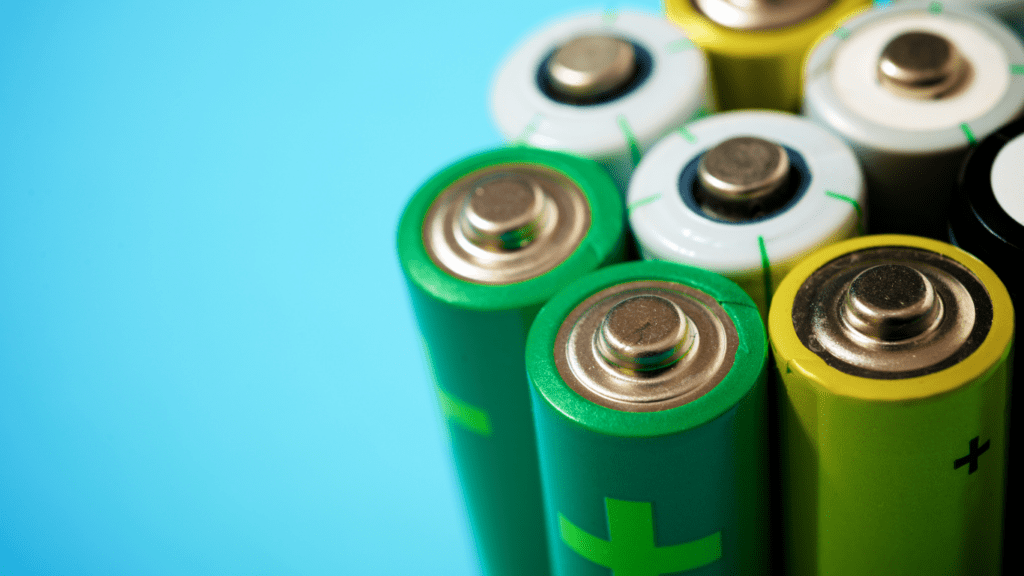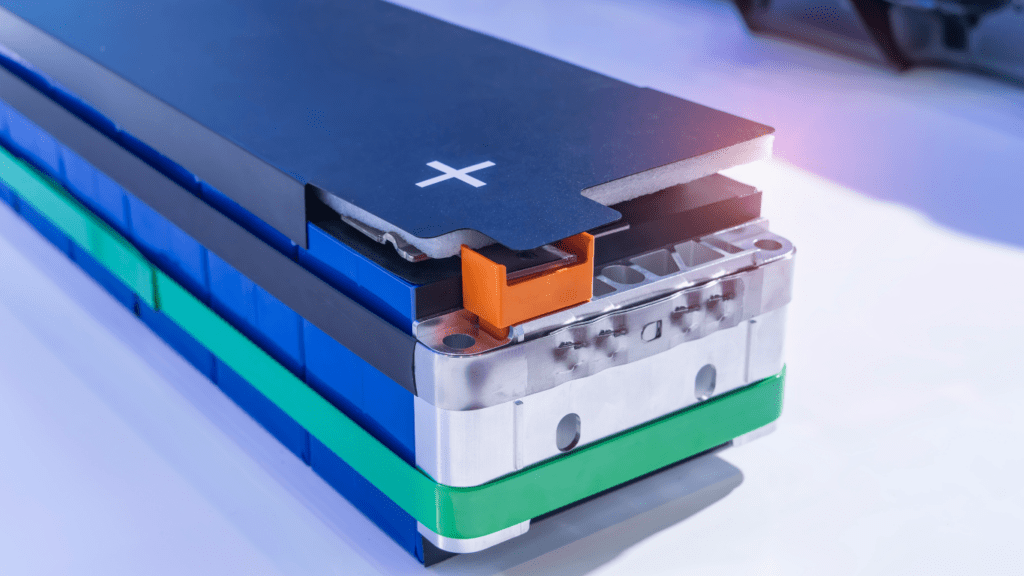In today’s rapidly evolving world of electric vehicles (EVs), advancements in battery technologies are revolutionizing the way we think about transportation. As an EV enthusiast, I’m excited to delve into the latest innovations that are extending the range of electric cars and reshaping the future of sustainable mobility. From cutting-edge lithium-ion to promising solid-state batteries, the quest for longer EV ranges is driving unprecedented research and development efforts across the industry.
As I explore the landscape of new battery technologies, I’ll uncover how these breakthroughs are not only enhancing the performance of EVs but also addressing the pressing need for eco-friendly transportation solutions. Join me on this journey as we discover how these advancements are paving the way for a greener, more efficient future on the roads.
The Importance of Battery Technology in Electric Vehicles
Electric vehicles (EVs) have revolutionized the automotive industry with their eco-friendly and sustainable approach. As the demand for EVs continues to rise, the pivotal role of battery technology in driving longer ranges and enhancing performance cannot be understated.
Current Challenges with EV Batteries
Keeping pace with the increasing popularity of EVs, one of the primary challenges lies in the limitations of current battery technologies. Issues such as limited driving range, long charging times, and concerns regarding battery longevity pose barriers to widespread EV adoption. Addressing these challenges is crucial for accelerating the transition to a greener transportation ecosystem.
Impact of Battery Performance on EV Adoption
Battery performance directly influences the adoption rate of EVs among consumers. Factors like driving range, charging infrastructure, and battery durability significantly impact the perceived value and feasibility of electric vehicles. Enhancing battery technology to offer longer ranges, faster charging capabilities, and improved longevity plays a key role in driving mass adoption of EVs and shaping a sustainable future of mobility.
Overview of New Battery Technologies
In the realm of electric vehicles (EVs), advancements in battery technologies are paramount. These innovations pave the way for longer EV ranges, propelling us towards a future of sustainable mobility. Let’s delve into the specifics of Lithium-Ion Improvements and Advancements in Solid-State Batteries to grasp the transformative potential of these cutting-edge technologies.
- Lithium-Ion Improvements
Lithium-Ion batteries have been a game-changer in the EV industry, offering improved energy density and efficiency. By continually enhancing the chemistry and design of Lithium-Ion batteries, researchers aim to boost energy storage capacity, extend battery life, and reduce charging times. These improvements are essential for overcoming current limitations and propelling the EV market towards mainstream acceptance. - Advancements in Solid-State Batteries
Solid-State batteries represent the next frontier in battery technology, promising even greater energy density, enhanced safety, and faster charging capabilities compared to traditional Lithium-Ion batteries. With a solid electrolyte replacing the liquid electrolyte found in conventional batteries, Solid-State batteries offer potential solutions to the safety concerns associated with flammable electrolytes. Their progress signifies a significant step towards achieving longer EV ranges and quicker charging times, essential factors in accelerating the transition to electric mobility.
Potentials of New Battery Technologies for EV Ranges
Innovations in battery technologies are revolutionizing the electric vehicle (EV) industry, paving the way for extended driving ranges and more sustainable mobility options. The advancements in battery design and composition are geared towards enhancing the overall performance of EVs while addressing key challenges faced by consumers. Let’s delve into how these new developments are reshaping the landscape of electric transport.
Extending Driving Range
The evolution of battery technologies, particularly the transition from traditional lithium-ion batteries to more advanced solid-state batteries, holds immense promise for extending the driving range of electric vehicles. By increasing the energy density of batteries and optimizing their efficiency, manufacturers can significantly boost the mileage capabilities of EVs. For instance, the adoption of solid-state batteries with their superior energy storage properties can potentially double the driving range of current electric vehicles, making long-distance travel more feasible and convenient.
Reducing Charge Time
One of the critical aspects of new battery technologies is their ability to reduce charging times significantly. The introduction of fast-charging capabilities, supported by advancements in battery chemistry and design, allows EV owners to replenish their vehicle’s battery in a fraction of the time it took with earlier technologies. By streamlining the charging process and making it more time-efficient, these innovations are eliminating a major barrier to widespread EV adoption. With quicker charge times, EV drivers can enjoy increased convenience and flexibility in their daily transportation needs, contributing to the mainstream acceptance of electric vehicles.
By harnessing the potentials of these new battery technologies for EV ranges, the automotive industry is propelling towards a future where electric vehicles offer impressive mileage capabilities and seamless charging experiences. The continued innovation in battery technologies underscores the commitment towards sustainable transportation solutions and reinforces the viability of electric vehicles as a mainstream mode of mobility.
Innovators Leading the Charge in Battery Technology
Exploring the forefront of battery technology reveals major players and promising startups driving innovation in the electric vehicle (EV) industry. These companies are reshaping the landscape with cutting-edge developments that promise to revolutionize EV ranges, sustainability, and performance.
Major Companies and Startups
In this dynamic space, established giants like Tesla and Panasonic, alongside newcomers such as QuantumScape and Solid Power, are at the vanguard of battery technology innovation. By investing heavily in research and development, these industry leaders are pushing boundaries to enhance energy storage capabilities, extend driving ranges, and shorten charging times.
Breakthroughs in Recent Research
Recent research initiatives have yielded significant breakthroughs in solid-state battery technology, offering potential solutions to current limitations in energy density and charging speeds. Innovations like the use of solid electrolytes and advancements in electrode design have shown promising results in improving battery performance while ensuring safety and longevity. These developments are key steps towards achieving longer EV ranges and faster charging times, paving the way for a sustainable future of electric mobility.
Environmental Impact and Sustainability
As we explore the environmental impact and sustainability of new battery technologies, recycling old batteries and eco-friendly manufacturing processes play a vital role in shaping a greener future for electric vehicles.
Recycling Old Batteries
When it comes to recycling old batteries, the process is essential in reducing environmental waste and ensuring the responsible disposal of battery components. By recycling old batteries, valuable materials such as lithium, cobalt, and nickel can be extracted and reused in the production of new batteries. This not only conserves precious resources but also minimizes the environmental impact of extracting raw materials for battery manufacturing.
Eco-Friendly Manufacturing Processes
In the realm of battery production, eco-friendly manufacturing processes are crucial for minimizing carbon footprint and reducing greenhouse gas emissions. Companies are increasingly adopting sustainable practices such as using renewable energy sources, optimizing production techniques to reduce energy consumption, and implementing efficient waste management systems. By embracing eco-friendly manufacturing processes, the battery industry can significantly contribute to sustainable development and environmental conservation.




